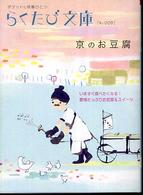Full Description
Co-published with "While assessment may feel to constituents like an activity of accountability simply for accreditors, it is most appropriate to approach assessment as an activity of accountability for students. Assessment results that improve institutional effectiveness, heighten student learning, and better align resources serve to make institutions stronger for the benefit of their students, and those results also serve the institution or program well during the holistic evaluation required through accreditation." - from the foreword by Heather Perfetti, President of the Middle States Commission on Higher EducationColleges and universities struggle to understand precisely what is being asked for by accreditors, and this book answers that question by sharing examples of success reported by schools specifically recommended by accreditors. This compendium gathers examples of assessment practice in twenty-four higher education institutions: twenty-three in the U.S. and one in Australia. All institutions represented in this book were suggested by their accreditor as having an effective assessment approach in one or more of the following assessment focused areas: assessment in the disciplines, co-curricular, course/program/institutional assessment, equity and inclusion, general education, online learning, program review, scholarship of teaching and learning, student learning, or technology. These examples recommended by accrediting agencies makes this a unique contribution to the assessment literature.The book is organized in four parts. Part One is focused on student learning and assessment and includes ten chapters. The primary focus for Part Two is student learning assessment from a disciplinary perspective and includes four chapters. Part Three has a faculty engagement and assessment focus, and Part Four includes four chapters on institutional effectiveness and assessment, with a focus on strategic planning.This book is a publication of the Association for the Assessment of Learning in Higher Education (AALHE), an organization of practitioners interested in using effective assessment practice to document and improve student learning.
Contents
Foreword —Heather F. Perfetti Preface —Jane Marie Souza Introduction. An Overview of Exemplars in Assessment —Tara A. Rose Part One. Student Learning and Assessment 1. The Evolving Measure of Learning —Bill Moseley and Sonya Christian 2. Students as Partners in Cocurricular Assessment — Jessica Greene, Burton Howell, and Michael Sacco 3. Assessment of Student Learning in the Arts, Humanities, Social Sciences, and Sciences — Jeffrey R. Lindauer and Patricia A. Coward 4. Leveraging Technology to Facilitate Assessment Processes — Scott Carnz, Mary Mara, and Amy Portwood 5. Indigenous Assessment. Cultural Relevancy in Assessment of Student Learning — Stephen Wall, Lara M. Evans, and Porter Swentzell 6. One Institution's Journey to Annual Program Assessment — Carol Traupman-Carr, Dana S. Dunn, and Debra Wetcher-Hendricks 7. A Systematic Approach to Building a Culture of Assessment. A Multiyear, Cohort-Based Professional Development Model — Mary Kay Helling, Jana Hanson, and Kevin Sackreiter 8. Introducing Assessment-Task Choice in an Online Bachelor's Course — Ryan Jopp, Keryn Chalmers, Sandra Luxton, and Jay Cohen 9. Employing Peer Learning Assessment at Scale — Brian Harlan, Shawn Moustafa, and Roxie Smith 10. Many Birds With One Stone. Developing a Multipurpose Student Assessment System — David D. Dworak Part Two. Student Learning and Assessment in the Disciplines 11. Assessment of Public Health Competencies at Multiple Levels —Sondos Islam 12. Elevating Assessment Processes Through Stakeholder Engagement —Leigh M. Onimus and Joyce A. Strawser 13. Competency-Based Student Assessment in Online and In-Person Master of Public Health Programs —Kimberly Krytus, Sarah Cercone Heavey, and Gregory G. Homish 14. Designing and Assessing Cocurricular Strategies to Promote Personal and Professional Development —Burgunda V. Sweet, Katherine A. Kelley, Melissa S. Medina, and Marianne McCollum Part Three. Faculty Engagement and Assessment 15. Giving Life to Institutional Student Learning Outcomes —Dan Shapiro 16. Assessing for Learning. The Scholarship of Teaching and Learning and Campus Assessment Culture — Kristina A. Meinking Part Four. Institutional Effectiveness and Assessment 17. A Structured Protocol for Demonstrating Institutional Effectiveness —Eric D. Stamps 18. Transforming From Within. Strategic Planning as a Tool for Institutional Reflection, Direction, and Transformation — R. Ray D. Somera and Marlena Montague 19. Being Sage About Institutional Effectiveness —Elisa Hertz 20. Do We Have It? Do We Do It? Does It Work?. A Three-Question Framework for Addressing Accreditation Standards and Ensuring Institutional Effectiveness — Dawn L. Hayward, Nancy Ritze, and Rebecca Gullan Editor and Contributor Biographies Index








